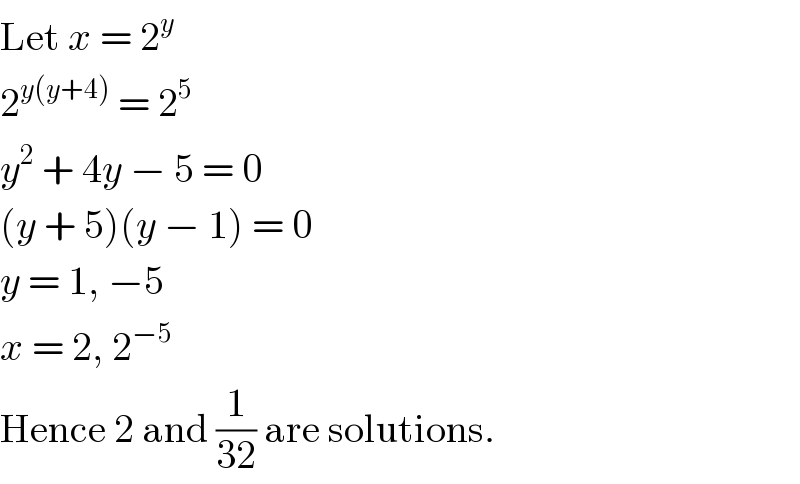Question Number 20195 by mondodotto@gmail.com last updated on 23/Aug/17

Answered by Tinkutara last updated on 23/Aug/17

$$\mathrm{Let}\:{x}\:=\:\mathrm{2}^{{y}} \\ $$$$\mathrm{2}^{{y}\left({y}+\mathrm{4}\right)} \:=\:\mathrm{2}^{\mathrm{5}} \\ $$$${y}^{\mathrm{2}} \:+\:\mathrm{4}{y}\:−\:\mathrm{5}\:=\:\mathrm{0} \\ $$$$\left({y}\:+\:\mathrm{5}\right)\left({y}\:−\:\mathrm{1}\right)\:=\:\mathrm{0} \\ $$$${y}\:=\:\mathrm{1},\:−\mathrm{5} \\ $$$${x}\:=\:\mathrm{2},\:\mathrm{2}^{−\mathrm{5}} \\ $$$$\mathrm{Hence}\:\mathrm{2}\:\mathrm{and}\:\frac{\mathrm{1}}{\mathrm{32}}\:\mathrm{are}\:\mathrm{solutions}. \\ $$
Commented by mondodotto@gmail.com last updated on 23/Aug/17

$$\mathrm{thank}\:\mathrm{you}\:\mathrm{really}\:\mathrm{appriciate}\:\mathrm{this}! \\ $$
